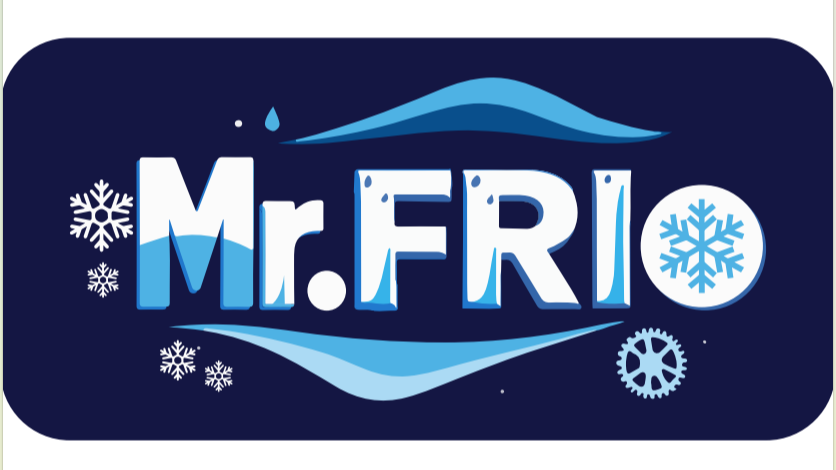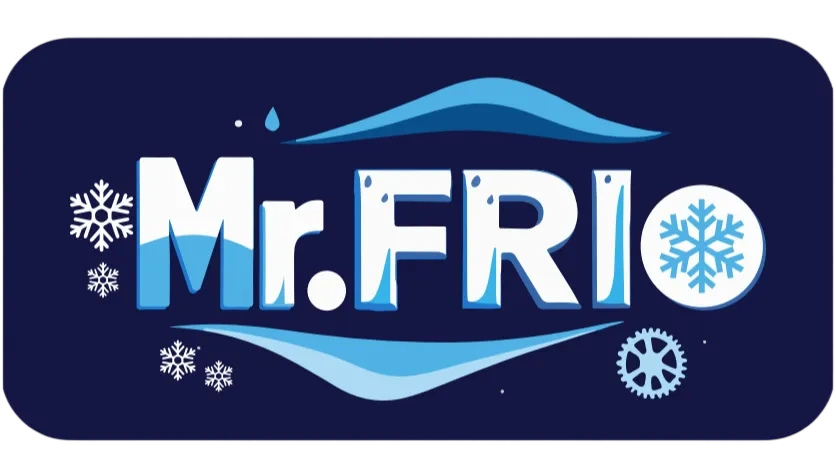Understanding Blast Freezers and Chillers
What is a Blast Freezer? Core Functionality Explained
Blast freezers are those industrial appliances that can chill food way faster than regular freezers ever could. Inside these machines, there are super strong cooling systems blowing cold air all around at lightning speed. This means food doesn't sit in that dangerous temperature range (between 40 and 140 degrees Fahrenheit) for very long at all. What makes blast freezers so good? They can drop food temps down to minus 40 degrees within just a few minutes flat. And this matters a lot because it keeps the food tasting better, holds onto more nutrients, and maintains that nice texture we all want. Restaurant chefs and food processors rely heavily on blast freezers every day in their commercial kitchens. Without them, frozen foods would often turn out mushy or lose important qualities that make them worth eating later.
Blast Freezer vs. Deep Freezer: Key Differences
Blast freezers and deep freezers both play important roles in keeping frozen goods safe, but they work differently and fit different needs. Blast freezers are built to freeze things fast, which is why restaurants and food processing plants rely on them so much when time matters. Deep freezers tell a different story though they keep everything at a steady cold temperature without trying to rush the process, so they're better suited for long term storage rather than quick freezes. The main thing that sets these apart is how fast they get the job done. A blast freezer might lock in those frosty conditions inside just a few hours while a deep freezer takes days to do the same trick. This speed difference really affects how well food stays fresh and how efficient operations run, especially in businesses where getting products frozen quickly makes all the difference between profit and loss.
Why Restaurants Need Specialized Freezers for Frozen Food
Restaurants rely heavily on specialized freezers like blast freezers because they keep food fresh longer while meeting those strict health code requirements. These industrial freezers actually save money at the end of the day by cutting waste and preventing spoiled products from going out the door. When chefs can prepare meals in bulk thanks to blast freezing technology, it makes tracking inventory much easier and keeps the kitchen running smoother during busy service hours. The quick freezing process preserves texture and flavor better than standard methods, which means customers get consistently good tasting food even when items are stored for weeks. Most restaurant owners find these freezer systems worth the initial expense since they directly affect bottom line profits through reduced losses and improved food quality that keeps patrons coming back week after week.
Capacity Requirements for Commercial Operations
Storage capacity needs should be at the top of anyone's list when looking at blast freezers for their commercial setup. Small eateries need different specs than big food producers who handle tons of product every day. Figuring out what gets frozen regularly plus making room for expansion down the road matters a lot. Blast freezers come in all sorts of sizes really. Some compact models work great for restaurants wanting to quickly freeze individual dishes while bigger industrial versions handle massive batches without breaking a sweat. Getting flexible storage options makes sense too since food demand tends to fluctuate with seasons and special events. Anyone dealing with serious volume will find that taking time to assess these factors upfront saves headaches later on and keeps things running smoothly through busy periods.
Cooling Speed and Flash Freezing Efficiency
How fast a blast freezer cools matters a lot because it affects how well food stays fresh and impacts day-to-day operations. Good quality freezers can bring temps down to around -40 degrees Fahrenheit pretty quickly, usually under an hour and a half. This kind of rapid cooling helps keep food tasting good and retains those important nutrients. For restaurants where time is money, this flash freezing makes all the difference in maintaining product quality. When shopping around for equipment, looking at how different models handle cooling speeds will point toward what works best for specific kitchen demands. Speed really counts in commercial settings where every minute counts during peak hours.
Energy Efficiency and Operational Costs
Businesses looking at their bottom line will find that investing in an energy efficient blast freezer pays off big time in the long run. When shopping around, pay attention to models with variable speed compressors and those that have actual energy saving modes built in these features really cut down on power bills. The real trick is figuring out how much money will actually be saved over years of operation, so check both how much energy the unit consumes overall and how well it performs under normal working conditions. A good compromise between being super efficient and meeting day to day operational needs often leads to substantial savings. This frees up capital for other parts of the business without compromising on keeping food products stored properly at safe temperatures.
Certifications (ETL, CE, CCC) and Safety Standards
Picking out a blast freezer? Make sure it comes with those important safety and efficiency marks like ETL, CE, or CCC. These labels basically tell us that the unit has been tested and works according to what local authorities require for health and safety stuff. That protects not just customers but also keeps the business from running into trouble down the road. Getting familiar with what each certification means helps folks make better buying choices without second guessing if they got a good deal on quality equipment. Food processors especially need to worry about this since keeping things safe to eat matters most in their operations. Having all those proper certifications on hand makes life easier when dealing with inspectors and shows everyone involved that the company takes its responsibilities seriously.
Types of Blast Freezers for Different Applications
Upright Blast Freezers for Space Efficiency
Upright blast freezers take full advantage of vertical space, so they fit right in where kitchen square footage is at a premium. The tall, narrow profile means these units don't eat up much floor space, which is why many small restaurants and coffee shops install them when every inch counts. Most models feature adjustable shelves that can be moved around depending on what needs storing, whether it's bulk ice blocks or delicate frozen desserts. What makes these freezers stand out isn't just their compact footprint though. They freeze things quickly enough to keep food quality intact over time, something restaurant owners really care about. For businesses squeezed into tight quarters, this combination of speed, space savings, and food safety makes upright blast freezers an obvious pick despite their higher price tag compared to standard freezers.
Roll-In Freezers for High-Volume Food Storage
Businesses dealing with massive food volumes rely on roll-in freezers, think bakeries producing hundreds of loaves daily or caterers preparing meals for big events. These industrial freezers are built for storing lots of stuff at once, which makes getting those heavy carts loaded and unloaded much easier than traditional models. The inside space is generous enough to fit entire pallets without hassle, something absolutely necessary when operations run nonstop and there's no time to waste. What really matters though is keeping everything frozen solid through busy periods. A good quality roll-in freezer maintains consistent temperatures despite constant door openings and closings, so perishables stay safe until they hit the oven or delivery truck.
Instant Freezer Solutions for Rapid Cooling Needs
Restaurants needing to cool down hot dishes fast rely on instant freezers designed specifically for this purpose. These machines use cutting edge tech to freeze food almost instantly, dropping temps without compromising taste or texture. Think about those rush hour moments when dozens of orders come in at once – that's where these freezers shine. They stop food from going bad by locking in freshness right away, which is huge for keeping up with demand during lunch rushes or dinner peaks. The speed factor alone makes them indispensable for any kitchen serious about preserving food quality while handling high volume without missing a beat.
Benefits of Modern Blast Freezing Technology
Preserving Food Quality and Reducing Waste
Blast freezing tech really makes a difference when it comes to keeping food quality intact. The fast freeze process stops those pesky ice crystals from forming inside the food, which otherwise would ruin texture and flavor over time. Food frozen this way stays closer to what people expect in terms of taste and all those nutrients we hear so much about these days. Another big plus is how this method cuts down on food waste because products last longer on shelves and in freezers. That means less tossing out spoiled goods, which saves money for businesses and reduces the environmental footprint too. As more companies focus on going green, investing in preservation technologies like blast freezing isn't just smart business, it's becoming kind of a necessity for staying competitive while meeting consumer demands for fresher products.
Compliance with Food Safety Regulations
Blast freezing tech plays a big role when it comes to keeping food safe according to regulations. Restaurants and food makers need this kind of fast cooling system to get their products down to proper freezing temps quickly enough to pass inspections. The speed matters because it stops bad bacteria like listeria or salmonella from multiplying while food sits around waiting to be frozen properly. Following these rules helps keep people healthy obviously, but it also saves companies from getting sued over food poisoning cases which can really hurt financially. When businesses invest in better freezing equipment, they're basically making sure their stuff stays good quality without risking anyone's health. And let's face it, customers notice when places take food safety seriously. People tend to remember哪家店靠谱 (which stores are reliable) based on how careful they seem with their food handling practices.
Maintenance Tips for Long-Term Freezer Performance
Routine Cleaning and Defrosting Best Practices
Regular maintenance is key for keeping blast freezers running well and lasting longer. Cleaning should be part of any regular maintenance plan because dirt, dust, and all sorts of grime tend to build up inside these machines over time. When this happens, the freezer just doesn't work as efficiently as it could. Don't forget about defrosting either. Whenever ice starts forming on the walls or coils, it needs to go. Too much ice means higher energy bills and uneven temperatures inside the unit, which ultimately shortens how long the freezer will last. Most businesses find that sticking to a simple cleaning and defrosting routine makes a world of difference. The freezers run smoother, break down less often, and generally perform better day after day.
Professional Servicing and Component Checks
Getting blast freezers serviced regularly by professionals helps keep them accurate and safe over time. When technicians come in, they check out everything from compressors to thermostats and those tricky door seals that so often go bad. These routine inspections catch problems before they become big headaches, which means fewer unexpected breakdowns and saving money on expensive fixes down the road. Many business owners find that working with the same reliable tech builds trust and gives them someone who really understands how these systems work. The knowledge that things are being looked after properly makes daily operations run better, and nobody wants to deal with frozen goods going bad because the freezer suddenly stopped working when no one was looking.
Table of Contents
-
Understanding Blast Freezers and Chillers
- What is a Blast Freezer? Core Functionality Explained
- Blast Freezer vs. Deep Freezer: Key Differences
- Why Restaurants Need Specialized Freezers for Frozen Food
- Capacity Requirements for Commercial Operations
- Cooling Speed and Flash Freezing Efficiency
- Energy Efficiency and Operational Costs
- Certifications (ETL, CE, CCC) and Safety Standards
- Types of Blast Freezers for Different Applications
- Benefits of Modern Blast Freezing Technology
- Maintenance Tips for Long-Term Freezer Performance


